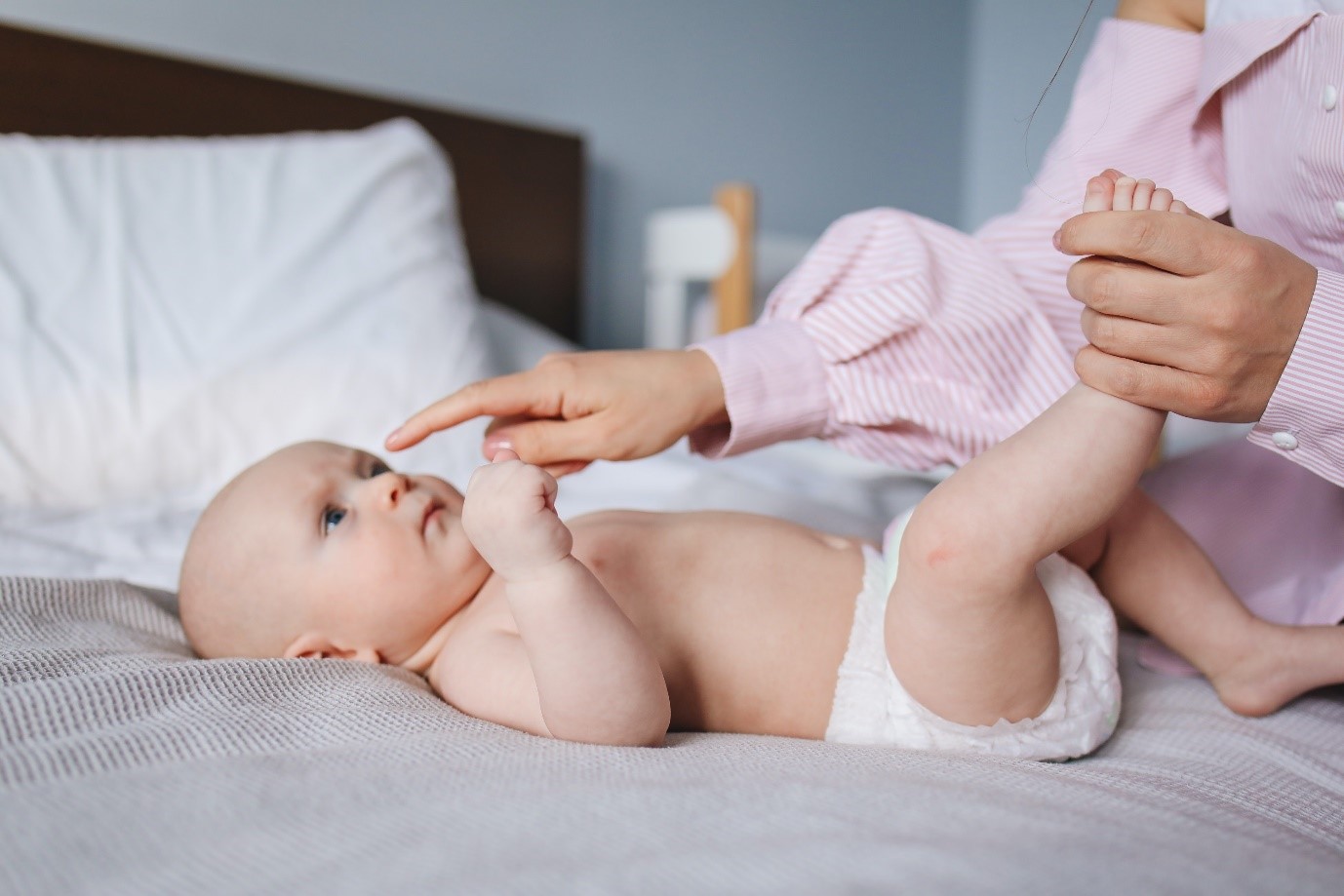Physical health

Key information on this page includes:
Vaccinations and immunisations
There are several vaccinations that your child should have in the weeks following their birth, their first ones should be after 8 weeks. They're free of charge, just book your appointment through your GP.
8 weeks:
- 6-in-1 vaccine - vaccinates against Diphtheria, Hepatitis B, Hib (Haemophilus influenza type B), Polio, Tetanus, Whooping cough.
- Rotavirus vaccine.
- MenB vaccine (protection against meningococcal group B bacteria).
12 weeks:
- 6-in-1 vaccine (second dose).
- Pneumococcal vaccine.
- Rotavirus vaccine (second dose)
16 weeks:
- 6-in-1 vaccine (third dose).
- MenB vaccine (second dose).
Common illnesses
Common illnesses in new-born children include:
- Nappy rash.
- Hand-foot-mouth disease.
- Colic.
- Chicken pox.
- Conjunctivitis.
- Oral thrush - can be found in babies who have had anti-biotics which reduce levels of healthy bacteria in the child’s mouth and it can be passed to mother during breast feeding.
Things to look out for and get help for as soon as possible
It’s good to understand why your baby cries, they could be hungry, unwell or hurt, don’t be afraid to ask for help. If your baby starts crying very suddenly but is happy and healthy when they are not, it could be a sign of Colic, this isn’t serious, typically only affecting them in their first few months, they don’t normally need to see a doctor because of it but if you think they should see a doctor then take them.
Pay attention to your baby’s temperature. Seek out help if they have a high temperature but their hands and feet are cold. Look for help if they have a high temperature that does not come down after giving them ibuprofen or paracetamol but be careful giving ibuprofen or paracetamol to your child, and do not give them ibuprofen or paracetamol if they are less than two months old.
As well as their temperature, keep an eye on their breathing. Watch out for rapid breathing or panting, and listen for any throaty noises that they might make. If they are finding it hard to keep their breath and sucking their belly in under their ribs it could be a sign of Bronchiolitis, and you should take your child to a doctor as soon as you can.
Other signs that something may be wrong include:
- Patchy, discoloured skin, this may be easiest to see on their hands or feet.
- Your child is hard to wake up.
- They are crying constantly and you cannot console or distract them.
- They produce green vomit.
- Their nappies are drier than normal - this may be a sign of dehydration.
Where to go for help and support
Trust your instincts and do what you think is best for your child.
If you have concerns about your child’s physical health that are not urgent you can visit a family hub, contact your health visitor, contact the Stoke-on-Trent Health Visiting HUB (0300 303 3298), contact ‘ChatHealth’ by texting 07312277161, or speak to your GP.
If your child has signs of serious illness:
- On weekdays, call your GP.
- Evenings and weekends, call NHS 111.
- If your baby is under 6 months old, doctors and nurses will find it hard to assess them over the phone, it is better to take your baby to an urgent treatment centre or to A&E if you are very worried.
You should call an ambulance on 999 if:
- Your child stops breathing.
- Your child won't wake up.
- Your child has a severe allergic reaction.
- Your child has a febrile seizure (a fit), you should ring for an ambulance even if they recover.
- Your child has a spotty, purple or red rash anywhere on their body that does not fade when you press a glass against it - this could be a sign of sepsis.
For serious injuries and life-threatening emergencies, call 999 or go to A&E.
Local activities
Breastfeeding network support groups (welcome mums to be).
- Shelton Family Hub (Thomas Boughey Family Hub), ST4 2DQ Wednesday 10am – 11:30am
- Bentilee Family Hub, ST2 0HP Monday 12:30pm – 2pm
- Westfield Family Hub, ST3 4RF Friday 10am – 11:30am
- Tunstall Family Hub, ST6 5TP Wednesday 12:30pm - 2pm
For more information, see our events page.
